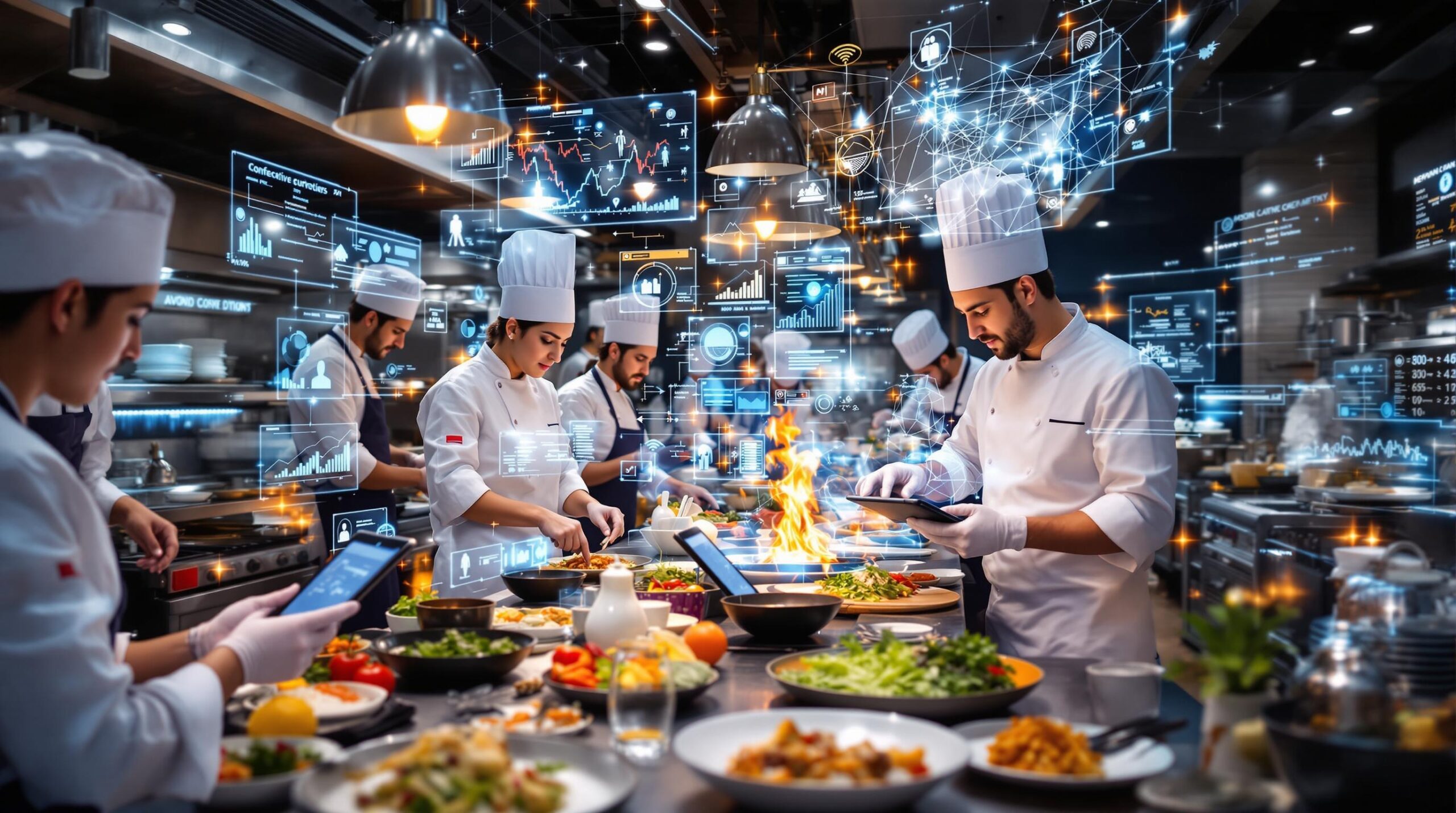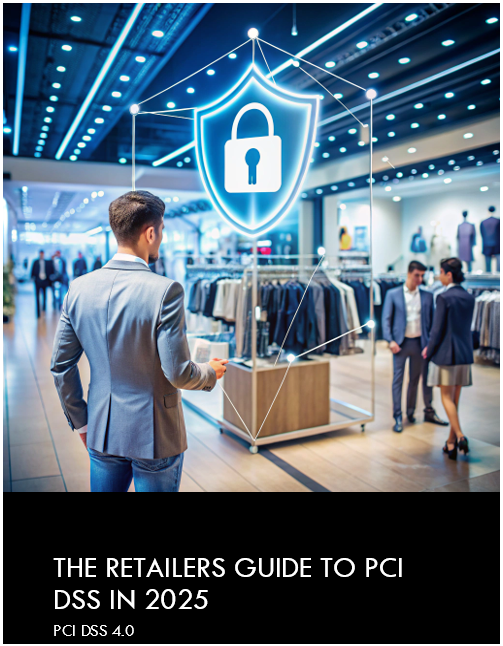Why Must Restaurant Leaders Understand Cybersecurity in Today’s Digital World?
The restaurant industry is rapidly adopting advanced technologies such as artificial intelligence (AI), third-party delivery apps, and automated ordering systems. These innovations offer greater efficiency, streamlined operations, and enhanced customer experiences. However, implementing these tools expands potential vulnerabilities, leaving restaurants susceptible to data breaches and cyberattacks.
How Does Digital Transformation Impact Cybersecurity in Restaurants?
Integration of digital technology is reshaping restaurant management and operations, driving efficiency and profitability. However, new digital tools open additional avenues for cybercriminal attacks. Consider these areas of exposure:
Point-of-Sale (POS) Security Risks
- Centralized collection of sensitive customer data—credit cards, personal details, and employee information—creates appealing targets for hackers.
- Older or improperly configured POS systems and related APIs provide exploitable weaknesses.
Third-Party Delivery Platforms Vulnerabilities
- Shared databases and integrations with popular delivery services heighten potential data exposure.
- Lack of stringent security controls from third-party vendors raises the risk of data compromise.
Risks Associated with AI-Driven Technologies
- AI-based chatbots and analytics require robust data encryption and secure storage procedures to protect sensitive customer insights.
- Poor security practices with AI systems, such as unsecured data transfers or flawed AI algorithms, risk exposing strategic business information.
What Are the Emerging Cyber Threats Restaurant Chains Face?
Cyber incidents have grown increasingly frequent and severe. Recent examples illustrate the vulnerabilities faced by restaurants:
Data Breaches and Ransomware Attacks
- In April 2023, Yum! Brands (owner of KFC, Pizza Hut, and Taco Bell) suffered a ransomware attack that led to the temporary closure of approximately 300 restaurants in the UK.
- The attack on Yum! Brands resulted in the theft of employee data, including names and driver’s license numbers.
- Golden Corral experienced a data breach in August 2023, affecting 183,272 individuals, including current and former employees and beneficiaries.
Sophisticated Hacking Groups
- The FIN7 (also known as Carbanak Group) hacking group has been actively targeting U.S. restaurant chains since 2016.
- FIN7 has successfully breached more than 20 U.S.-based hospitality companies, including suspected attacks on Chipotle, Baja Fresh, and Ruby Tuesday.
IoT Vulnerabilities
- The increasing use of IoT devices in food production and distribution introduces new risks, including potential malware infections, unauthorized access, and data breaches.
- Inadequate network security for IoT devices can lead to supply chain disruptions, such as compromised temperature sensors affecting food safety.
Point-of-Sale (POS) System Attacks
- As restaurants increasingly adopt cashless payment systems, POS systems become more vulnerable to attacks7.
- In 2023, thousands of restaurants were impacted when the Blackcat Ransomware Group attacked Aloha POS restaurant software7.
- QR codes and digital wallets introduce new vulnerabilities, making restaurants more susceptible to skimming and phishing schemes.
Payment Card Data Breaches
- In 2018, the PDQ restaurant chain suffered a data breach affecting customers’ payment card details at most of its locations.
- The breach lasted from May 2017 to April 2018, exposing customer names, credit card numbers, expiration dates, and CVV codes.
Why Treat Regulatory Compliance as a Strategic Asset?
Many organizations view cybersecurity compliance, like PCI DSS, as checklists. In reality, these regulatory standards form the foundation for strong cybersecurity practices.
Ensuring Payment Security with PCI DSS
- Implement end-to-end encryption, tokenization, and secure processing systems to protect customers’ card data.
- Employ periodic (frequent) penetration testing and maintain role-based access control measures.
- Conduct real-time monitoring and maintain comprehensive logging of all payment transactions to quickly detect and respond to security incidents.
- Establish robust vendor risk management protocols, ensuring that third-party payment processors adhere to PCI DSS standards and best practices.
How Can Restaurants Integrate AI Securely?
As AI becomes pivotal to modern restaurants, securing these powerful systems must become a top priority. Security should permeate all stages of AI implementation:
- Protect Training Data: Safeguard sensitive datasets through encryption from creation to deployment.
- Validate AI Algorithms: Adopt thorough adversarial testing and security vetting before rolling out solutions.
- Operational Standards: Continuous monitoring of AI activities, regular backups, and recovery strategies protect operations against AI-specific threats.
- Clear Expectations: Understand the variability associated with AI solutions, as compared to traditional programmatic technology, and how and when it is appropriate to use AI.
What Cybersecurity Strategies Should Restaurant Leaders Implement?
Robust Third-Party Risk Management
- Evaluate vendors through accurate audits and certifications like PCI, SOC-2 or ISO 27001.
- Implement clear agreements detailing data protection obligations and incident notification timelines.
Adopting a Zero-Trust Approach
- Deploy strict micro-segmentation policies restricting system access based on precise business needs.
- Constant vigilance over all network access points creates stronger protection against external and internal threats.
Employee Cybersecurity Training and Awareness
- Simulated phishing tests regularly measure staff responses and identify training needs.
- Leverage modern vishing awareness training to address the emerging AI voice threat.
- Robust password protocols that enforce complexity, frequent updates, and phishing resistant multi-factor authentication entry points add essential layers of security.
Why Is Cybersecurity Integral to Competitive Success for Restaurants?
With rapid digital adoption and rising cyberattacks, restaurant executives must rethink security as a critical component of their competitive advantage. Reliable cybersecurity measures build trust, ensure operational efficiency, enhance brand reputation, and secure customer loyalty.
Restaurants that prioritize effective cybersecurity strategies will not only protect organizational assets but also reinforce their industry standing. This proactive approach prepares businesses to confidently utilize emerging technologies while safeguarding against costly and reputation-damaging cyber incidents.
The restaurant industry’s future belongs to those organizations that see cybersecurity not as an expense but as a fundamental element of long-term operational integrity and success.





